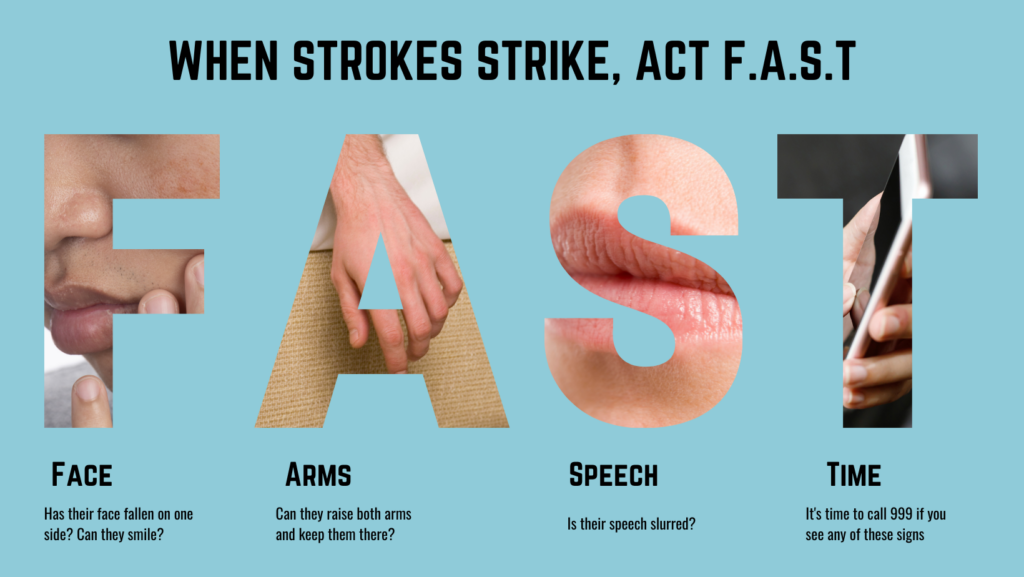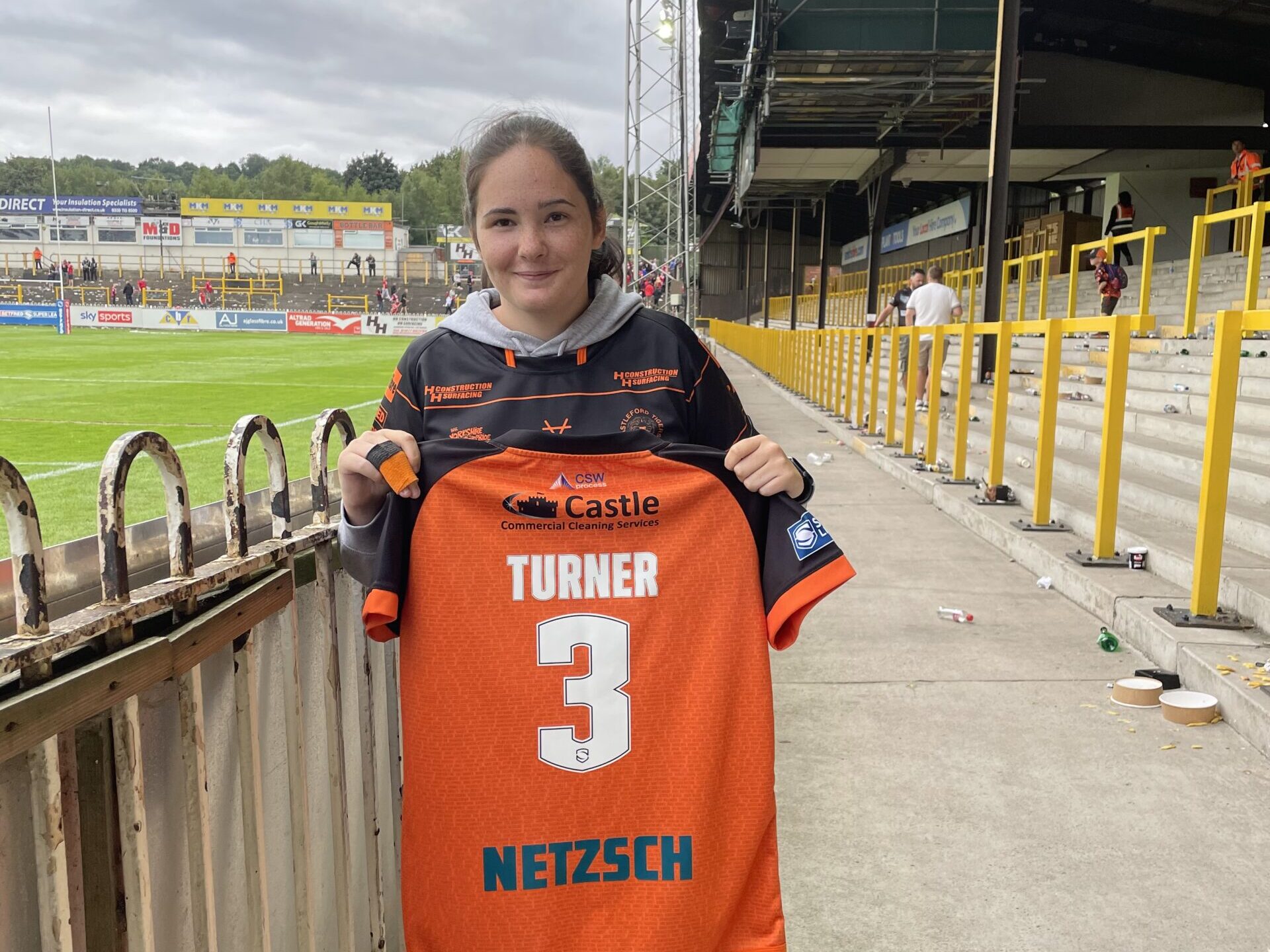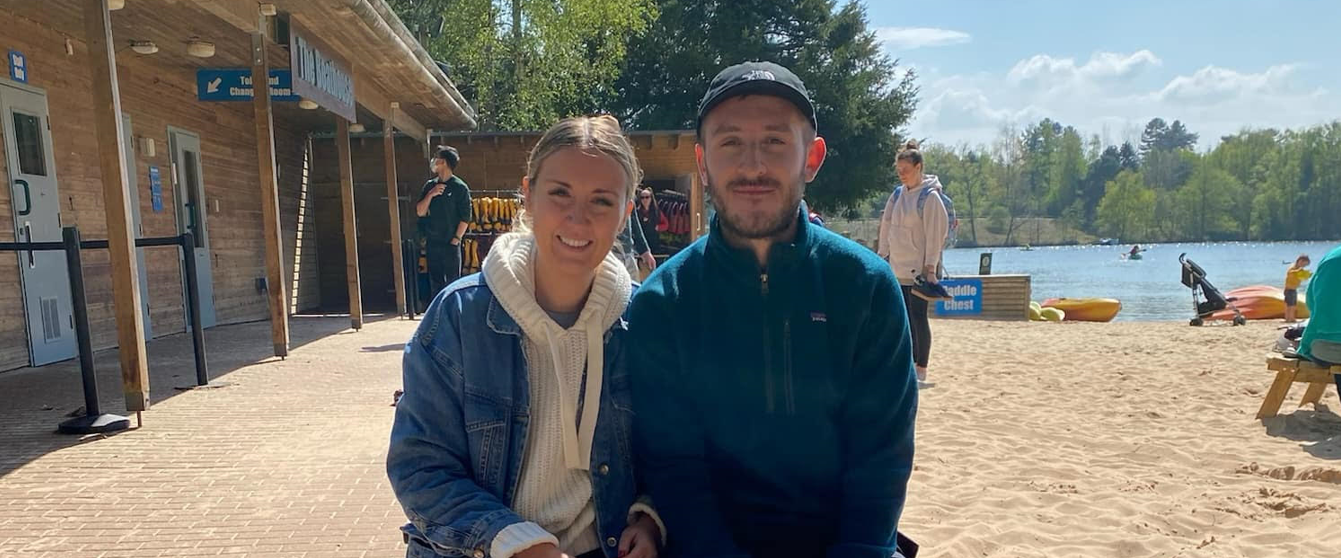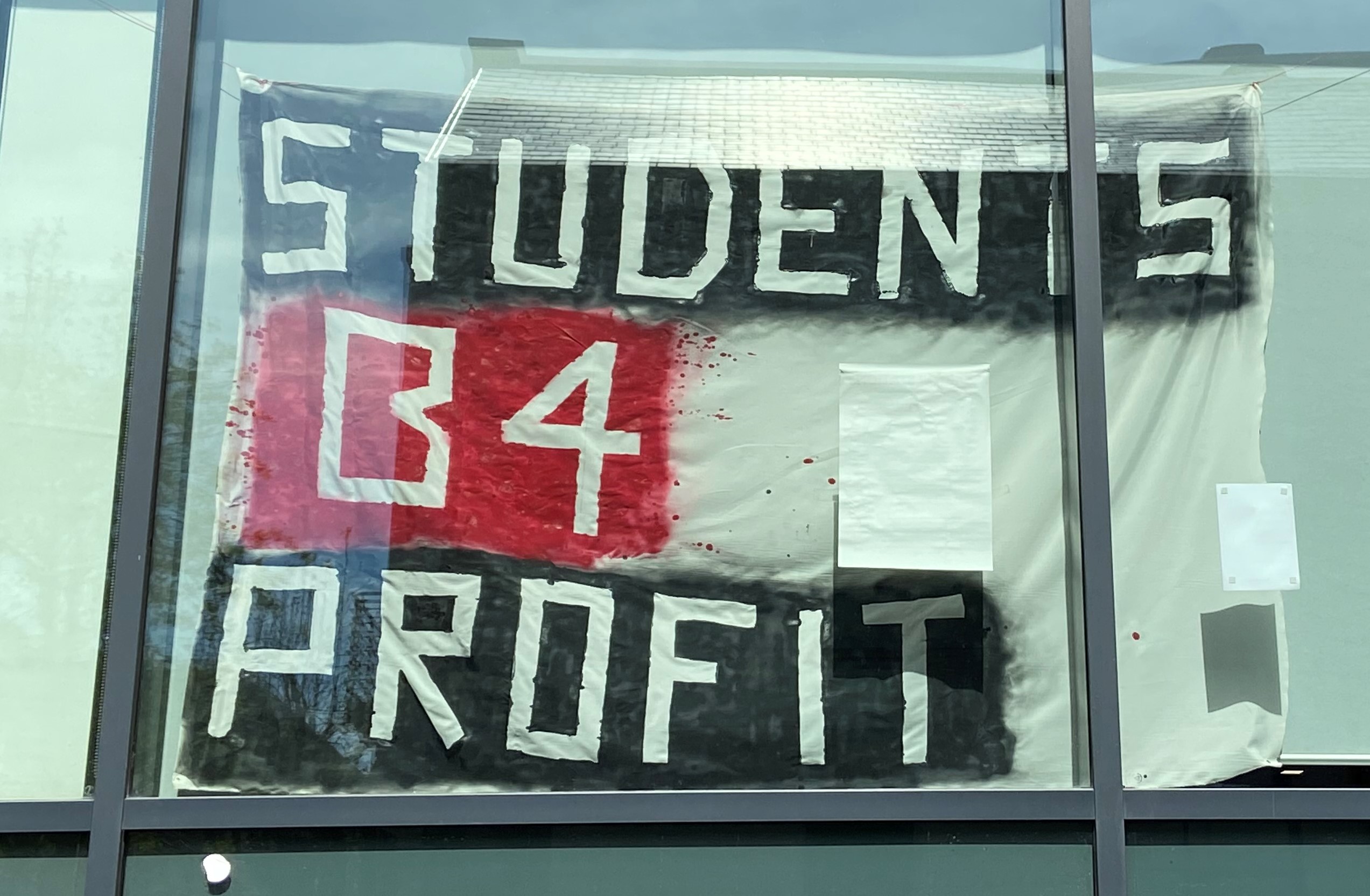“Try and smile for me,” asked Georgia Hanson’s mum when she complained of a severe headache after waking up feeling unwell in October 2021.
Knowing something “wasn’t quite right”, Miss Hanson, who was 19 at the time, recalls her vision was blurred and she suffered a sudden loss of sensation in the right side of her face and right arm.
Her mum was using the FAST test to work out if she was showing signs of a stroke.
“I knew what she was thinking. When I couldn’t smile, we both knew exactly what was happening,” said Miss Hanson, a student at Sheffield Hallam University.
The acronym consists of four parts; (F) Facial weakness, (A) Arm Weakness, (S) Speech problems, with the final letter instructing sufferers; “Time to call 999” if they are showing any of the above symptoms.

Miss Hanson’s mum called an ambulance, which arrived approximately 40 minutes later.
Although Miss Hanson, now 20, presented more than one of these symptoms, a doctor at Pinderfields Hospital, Wakefield, told her they were 99% sure it was “just a migraine” and that she’d “got a bad cold and to go home and rest”.
“I don’t think I was taken seriously at all. The staff in A&E pretty much ruled out a stroke simply because of my age,” said Miss Hanson.
“I was placed in a side room by myself which was so scary. I wasn’t even offered any pain relief,” said the student.
She was discharged later that evening and told the Transient Ischaemic Attack (TIA) clinic would be in contact the following day.
After a follow up discussion with specialists, she was sent for an MRI two days after she was taken to A&E, and was told this was to rule out a stroke.
Unfortunately the specialist scan confirmed Miss Hanson had suffered from an Ischaemic stroke, where the blood supply to the brain is temporarily interrupted.
Miss Hanson was initially refused physiotherapy as she hadn’t been admitted to hospital for her stroke.
She claims the consultant also made it clear the waiting list for the treatment would be long, and because of the pandemic, a lot of outpatients wouldn’t actually be seen.
Miss Hanson was told by her GP she needed a specialist in Neuro-physio rather than just Musculoskeletal (MSK) physio.
“I was concerned that the issue with my hand was starting to get worse quite rapidly,” the Sheffield Hallam student said.
Worried, she booked to see a private physiotherapist who was able to see her a week later and began a programme of treatment.
The stroke left Miss Hanson unable to drive, with limited mobility in her right hand and has dealt with bladder incontinence issues, alongside general fatigue.
She said: “Recovery has been and continues to be very difficult. I’m always tired, regardless of how much rest and sleep I get.”
In October 2021, Miss Hanson sought out help from the charity, Different Strokes, which aims to help young stroke survivors.
Support workers explained exactly what a stroke was and what can cause them.
Miss Hanson said: “From the first day I contacted them, they have been amazing
“This was really beneficial to me because often at the hospital there are a lot of medical terms used which make it hard to understand.”
The charity encouraged survivors to talk openly about what has happened to them, highlighting they should never fear asking for help.
Miss Hanson said: “Mentally, it’s been challenging. Initially, when I had the stroke, I didn’t really understand the enormity of it. I thought if I could think positively, I’d be fine.
“Unfortunately, in reality, this wasn’t the case. A stroke is a big thing to go through and to come to terms with.
“My physiotherapist told me, ‘Your body can stand almost anything, it’s your mind you have to convince’.”
She is now having regular physiotherapy, occupational therapy, and neuropsychology and feels she is at a good point as she waits for plastic surgery on her hand.
“I’d rather take one day at a time, try my best everyday in everything I do and with the support of the majority of my family and friends I’m hopeful for a bright future,” said Miss Hanson, who is now in the final year of her degree.
Miss Hanson wants other stroke survivors to understand rehabilitation can be challenging, but believes realistic targets, candid conversations with professionals, and trusting the process, will help.
She said: “Having a stroke has taught me a lot about myself. I’m stronger than I thought I was and I have now been given an opportunity to raise awareness of young strokes by telling my story and making people aware of the signs/symptoms of a stroke which for me is something to be proud of.”
If you are a young person who has suffered from a stroke or know someone who has, do not hesitate to get in touch with Different Strokes for support and recovery in reclaiming lives.




